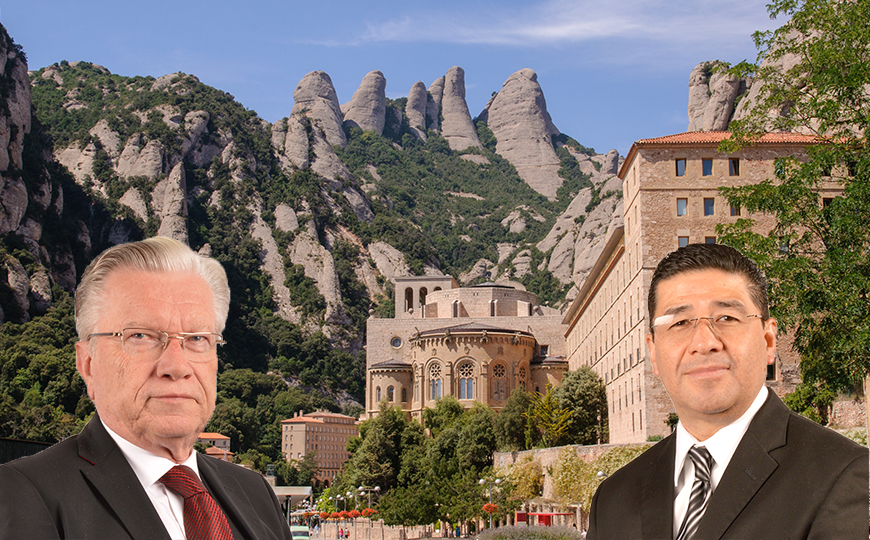When, on Friday, October 27th the Catalonian Parliament decided in a secret vote of 70 to 10 in favor of independence from Spain, Prime Minister Mariano Rajoy immediately went into action. While the Catalanes were still celebrating and dancing in the streets, Rajoy invoked Article 155 of Spain’s 1978 constitution, eliminating all aspects of Catalonia’s regional autonomy, dissolving its parliament, placing Spain’s Vice-Premier, Soraya Sáenz into the office of the regional president and calling upon the national prosecutor to charge a now invisible Carles Puigdemont and his entire cabinet with rebellion, sedition and embezzlement. Under these accusations, which carry a maximum sentence of 25 years, Puigdemont, who is now 55, would finally get out of prison at the age of 80! In his case, there is a gruesome historical antecedent: in 1934 the then Catalonian president, José Companys, declared his region’s independence, was arrested and imprisoned in Madrid’s central prison and shortly thereafter murdered in his cell. To avoid that fate, Carles Puigdemont and five of his cabinet ministers fled Barcelona on Monday, October 30th, in their cars and booked a flight from Marseille, France to Brussels, Belgium to request political asylum. Apparently, strangely ignorant of a supranational convention which holds all European Union member countries to be safe countries of origin and prohibits the granting of political asylum, their request received an immediate cold rejection from Belgium’s prime minister Charles Michel. Now, Puigdemont and his five friends face a dilemma: Belgium has an extradition treaty with Spain ! So, all six of them could find themselves in a Spanish prison very soon. Meanwhile, back in Catalonia, the principal separatist party, the ANC, in following Puigdemont’s orders to start a campaign of civil disobedience, is exhorting the people, all former government officials and the regional police to ignore the orders of Rajoy’s central government. This could very well escalate into uncontrolled violence if Rajoy decides invoke Article 8 of the Spanish constitution by mobilizing the armed forces to guarantee the territorial integrity of Spain. In this emotionally charged, potentially explosive atmosphere, it is absolutely incredible that Rajoy is now taking the recklessly stupid step of calling for elections in Catalonia on December 21st ! Should there be violence indeed, a Catalonian protest vote against the central government would seal Spain’s financial and economic doom by legitimizing the region’s independence. But an even more tragic future would await Catalonia: immediate loss of European Union membership, expulsion from the Eurozone coupled with the prohibition to use the Euro as currency, closed borders to the rest of Europe because of the automatic expulsion from the Schengen Agreement, the re-imposition of high customs duties, the invalidation of the citizens’ European passports and cancellation of mutual recognition of educational – professional degrees. As 1,603 businesses have already abandoned Catalonia, with a resultant loss of more than 500 billion Euros in corporate capitalization over the past month, the region would be biggest loser by far in this irrational quest for separation. It seems to us that the lesson learned from this separatist action is that in the first place the countries must pay special attention to how they are conducting their internal politics since apparently, the lack of political leadership at world level seems to be the constant today and that is putting the countries of the world at very high risk. Second, as we had pointed out in our first bulletins, we seem to be witnessing a new world order where current conditions seem to have come to an end. Finally, we consider that Mexico's foreign policy must remain alert to all international changes and make an assessment of the risk they represent at both the political and economic levels.




